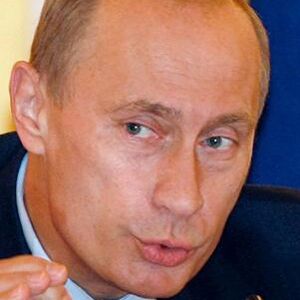
Russia and Japan Move to Strengthen Energy Ties
After decades of weak ties because of a dispute over four Pacific islands, officials from Japan and Russia have launched high-level talks on such strategic issues as trade and energy.
The first round of talks in a strategic dialogue series between the two countries took place January 23 to 25 when a Japanese delegation headed by Deputy Foreign Minister Shotaro Yachi visited Moscow to meet with Russian First Deputy Foreign Minister Andrei Denisov and other officials. Discussions focused on political, economic, security and energy issues, with a view to building toward a resolution of the territorial dispute over the Russian-controlled Kuril islands. To this end, further bilateral talks are expected in the coming months, with a visit to Russia by Prime Minister Shinzo Abe being planned for later in the year. The aim is to eventually conclude a peace treaty between the two nations—which has been hindered ever since the conclusion of World War ii—and establish a strategic Russian-Japanese relationship.
Following talks on the first day of meetings, the Russian Foreign Ministry stated: “The sides voiced their views on the issue of ensuring energy security, confirmed readiness to seek ways to step up cooperation in this sphere, including joint projects in the oil, gas and nuclear industry.” Though details of the meetings were not released, Tokyo also claims to be satisfied with the outcome, according Singapore’s Straits Times (January 26).
These talks have come as a result of a January 2003 meeting held between Russian President Vladimir Putin and former Japanese Prime Minister Junichiro Koizumi, where they agreed to foster growth in six key areas, including political relations, trade and economics.
Coinciding with the high-level strategic talks was a meeting between the head of Japanese Natural Resources and Energy Agency Harufumi Mochizuki and the ceo of Russian gas giant Gazprom on January 25, which resulted in an energy cooperation agreement being signed. “Particular attention was paid to the need to attract Japanese investment and technology in developing gas refining, chemistry and machine building,” Gazprom stated.
For Japan in particular, building a bridge to energy-laden Russia seems to be an emerging priority. For Russia, improved ties with Japan open up a new market for Russian energy and goods.
Japan’s immediate interest is developing a relationship with Russia to diversify its over-reliance on the Middle East, which presently supplies 90 percent of Japan’s oil imports. It is estimated that Japan could potentially receive up to 15 percent of its petroleum from the East Siberian oil fields.
There is also the issue of Japan’s interest in the Russian-Chinese Pacific pipeline, which is still under discussion. Japan has taken issue with Russian and Chinese plans to build a Pacific pipeline, which, in its first stage, despite assurances from Russia, appeared to circumnavigate Japanese interests and cater only to the Chinese. The 2,400-kilometer Russia-China oil pipeline is to extend from Russia’s Angarsk to Daqing in Northeast China’s Heilongjiang Province. However, Japan has lobbied hard for the second stage of the pipeline to include Japanese interests, such as running the pipeline to the Sea of Japan.
Though China will not be pleased to see Japan muscle into an energy relationship with Russia, Beijing is also not in a position to dictate terms to Russia because of its own heavy reliance on Russian energy. Despite this small quandary for China, the important trend here is that Russia appears to be emerging as a real partner to both Asian countries.
We can expect to see Japan and Russia continue to strengthen ties in an effort to establish an energy framework favorable to Japanese energy interests and Russian trade. The scenario of such a Russian-Japanese strategic partnership emerging follows the pattern of behavior our booklet Russia and China in Prophecy spells out.
